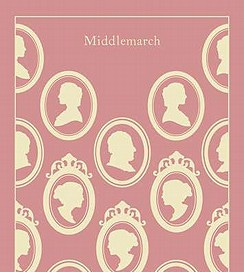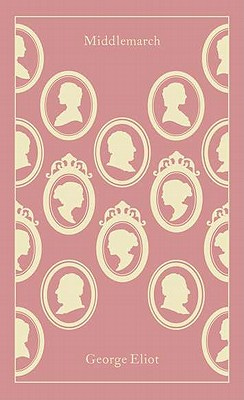Dear Reader,
And thus, we are in the last sprint to year end. September already. I had a busy (and delicious) week for Onam. Sadya, sadya leftovers for dinner, and several rounds of payasam. Pssst.. I no idea how to cook a full sadya spread. I've been lucky enough to eat feasts cooked by others all my life. :D Unlike my usual love towards ada pradhaman, this year I leaned towards paalada pradhaman. It was thick, sweet and lovely with every sip. In book news, my heart was broken into smithereens over the excellent Delhi (more later) over the weekend. Back to payasams, I am settled with a nice bowl of ari payasam sent by a grand-aunt as I type this. Life with payasam is definitely better.
Important tip — If you like this newsletter, simply drag it from your list of emails (if it usually shows up in Promotions or Updates in Gmail) to your Primary tab. You'll never miss an update in that case. x
Read
I wrote a profile of Mini Krishnan, translations editor at Oxford University Press India on Huffpost India. Krishnan astonished me with her knowledge about the history of translations and also with her early morning emails. This piece contains several gems from our conversation.
Krishnan has worked in publishing for four decades and commissioned and edited 135+ translations from 14 Indian languages, plus many educational texts. Read for trips down the memory lane, anecdotes and green-room stories how a translation comes to life. Did you know it was very difficult to source a copy of an original novel (Pulayathara) and finally after many failed library hunts, a personal copy helped in the translation work? Or that serendipity plays a role in finding translators? — Lots more to chew on.
Book Recommendation
Last month I plodded through the big, chunky Middlemarch by George Eliot. It was a novel on my some-day-i-shall-read list. I saw tweets from Meenakshi Reddy Madhavan (author) and Tara (HC) about how gossipy the novel was. And how very funny. I was intrigued. A doorstopper with gossip and humour? And Woolf has said it is the first English novel for grown ups. Count me in. I found myself a copy with much difficulty and pledged to read it slowly, month by month, section by section, till December.
Being allergic to big novels, at first I was quite disappointed. When I finished 2 books (Sections) of the eight, I didn’t love this novel set in a Midlands town so much. I had expected a Miss. Brooke love story. I didn’t know why a doctor (Tertius Lydgate) was getting so much 'page-time'. I didn't understand why so many men are talking so many different things. I didn’t know why Dorothea Brooke was making such an unromantic choice for a partner. I felt like I had fallen into the jaws of a 'hyped novel' and mentally made a note to recommend it as 'not a must-read, but if you have time, read it'. BUT, dear reader, I was wrong. Middlemarch was pure bliss. Book 3 onwards, I was completely smitten. In fact, I went and re-read the first two sections because I just couldn’t get enough of Middlemarch. As you already know by now, I couldn't really wait to stretch out the read until the end of the year. I had to read. I had to know. I was reading the novel everywhere — in traffic jams, waiting outside grocery stores, at my desk, on bed, in kitchen and even while brushing my teeth (Would not recommend brushing and reading this huge book btw).
As the tag line of Middlemarch goes, the novel is more about provincial life than a love story. There are three (two?) main 'new' marriages happening in the book. And minor relationships and also the chemistry of marriage between older folks. Dorothea, at 19 years, agrees to marry the 50-year-old Casaubon because she wants her life to be meaningful. She imagines her contribution and support to Casaubon’s scholarly life would be a fulfilling one. But she is quickly displeased to note that she overestimated the man. Meanwhile, the doctor Tertius Lydsgate marries for love but realizes that his wife, Rosamund Vincy, loves spending money and they are running into debts. He wants to do away with servants and move into a smaller house, but his wife would hear none of it. Then there’s Dorothea’s sister, Celia, who marries and finds pleasure in motherhood. The charming Will Ladislaw, a cousin of Casaubon’s, enthralls Dorothea much to the dislike of Casaubon himself. There’s the irresponsible James Vincy, the wise Mary Garth whom James adores, the rector’s wife, the helpful Mr. Garth, the rich Mr. Bulstrode with a heavy secret. There are several soirees, gossipy gatherings, villanous wills with ridiculous terms, professional jealousies and intense discussions.
Middlemarch might be called a psychological novel. We are always thrown into the inner turmoil of the characters. Also, we are introduced to the political and social reforms — the Reform Act, Catholic relief act — opposed by the conservatives, the choice of profession for a man, education at university, ethics in business making, and the small world of Middlemarch where there are no secrets. If Eliot was a contemporary author, I would’ve complained about not giving us enough of Dorothea and Will. But in reality, I was satisfied. I loved eavesdropping on the chatter of the old ladies, peering at men who are shaking their heads proclaiming that they know best. I do wish we had more of Mrs. Cadwallader though — she is incredibly funny! (Somebody write a retelling with Mrs. Cadwallader's POV). There are so many problems and conflicts in the novel, and the eighth book/section was really the best when Eliot ties everything together. You feel relieved to know how it all ends.
If you are looking for a copy, I recommend Oxford World Classics edition which was super useful with its introduction by David Carroll and notes to understand the classic better. I had wanted the gorgeous Penguin clothbound ed but I couldn’t source a copy. And I am definitely happier with OWC because of the notes. Also I would recommend a physical copy for this novel; don’t think an e-copy or audiobook would work as well. Another tip — pick up the book when you are ready for it and have the time to spend on it. I felt I could not have enjoyed the book as much if I had picked it up five years ago. About rating — don’t think this classic needs one — but if you are curious, this was a five-star read for me.
STEAL DEAL for the excellent Pachinko by Min Jin Lee about Korean immigrants in Japan, eight decades and four generation. NEW BOOK—Delhi: A Soliloquy by M. Mukundan, translated by Fathima EV and Nandakumar K was splendid (also five stars). This twitter thread sums up my thoughts, and I highly recommend you get yourself a copy.
Watch
I see C U Soon (Malayalam) doing rounds on social media after the release yesterday. So probably you’ve watched it already. If you liked it (or even if you didn’t), watch another older film starring Fahadh Faasil — 22 Female Kottayam. I remember watching it in theatre with friends and feeling absolutely shocked. It is a thrilling, shocking movie about a 22-year-old nurse Tessa (Rima Kallingal) falling in love with a man. She dreams of going abroad to work, but her life goes topsy turvy. She is brutally raped, convicted in a false case, and makes a comeback to take revenge on those who tortured her. There are many trashy men, a pregnant jail-mate, dark deals and heart warming scenes (fair warning—they’ll soon leave a bitter aftertaste). The movie made waves in Kerala when it was released and Fahadh, Rima and Pothen gave stellar performances.
Watch on Amazon Prime.
Amazing links
- This essay Why I Love Daffodils, an Unpopular Postcolonial Flower by Aruni Kashyap about what it means to be an Indian writer, what ‘gaze’ dictates us and about postcolonial resistance and language empowerment. Brilliant! (Catapult)
“I feel slightly unsure when someone brands me, with the slightly flattening term, Indian English Writer. Goswami and Debi didn’t have to write with the burden of being Indian enough. These questions were incomprehensible for them. They wrote sans the pressures of proving their Indian-ness in front of an imagined reader.”
- Jesmyn Ward’s heartbreaking essay on grief, navigating her husban’d death and the pandemic (Vanity Fair)
“One of my favorite places in the world was beside him, under his warm arm, the color of deep, dark river water.”
- How The French Concept "Mise En Place" Is Helping Me Stay Productive While Working From Home (Danielle Cheesman, The Good Trade)
All that to say, if it’s good enough for the greats (Anthony Bourdain, Julia Child), it’s good enough for me. And I am unsurprised that I am drawn to this concept. As someone who can feel enclosed by clutter (and, admittedly, get a little shrieky about it—as my partner will attest), I’ve learned that, for me, a clearer space makes a clearer mind. This became no more evident than when I began working from home several months ago due to the spread of COVID-19.
- Comic : Stone Fruit Season (Shing Yin Khor, Catapult)
“Here’s why peaches are important to me. Once I thought I might die and ate a peach in the shower and did not die”
- Art : The Bard in Acylic (Shweta Rao Garg, The Alipore Post)
“The artworks are replete with postcolonial pop-cultural references. While references to Shakespeare’s work makes for an enriched viewing, this series can also be viewed as a portrayal of my world view as an Indian woman.”
Until next time,
Resh x
(This newsletter may contain affiliate links which might earn me a very small commission at no extra cost to you)
If you liked this newsletter, the best way to show support would be to forward the subscribe link to a friend or share via your favourite social media. Thank you for reading.





